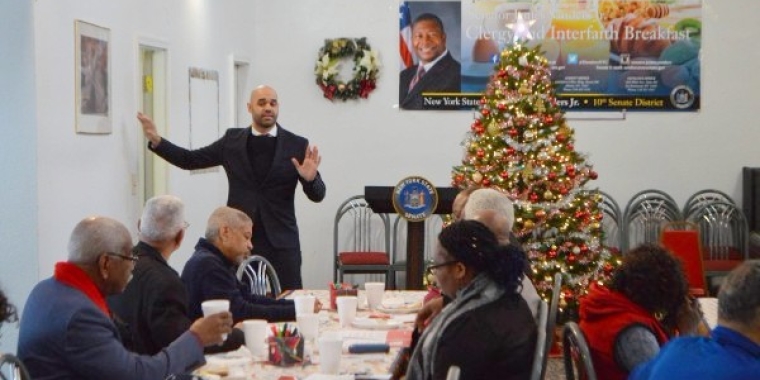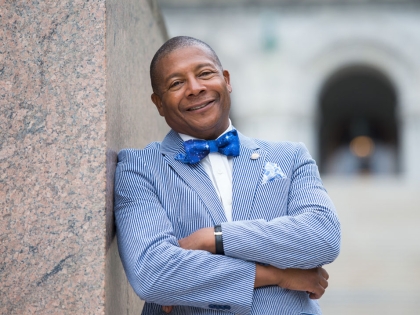
Religious Leaders Get Free Grant Writing Training at Sanders' Clergy Breakfast
May 27, 2016
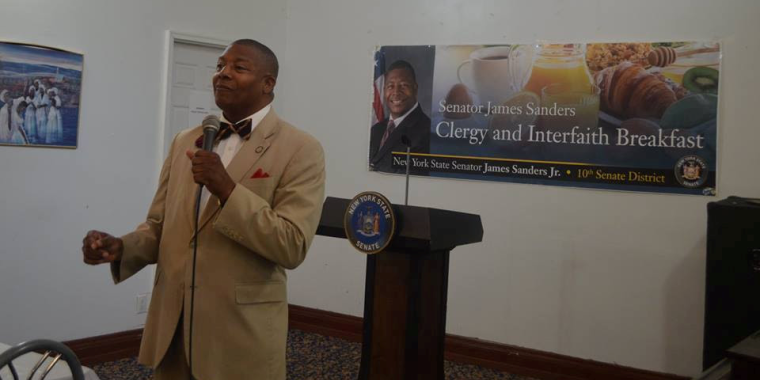
State Senator James Sanders Jr. (D-Rochdale Village) today held his monthly Community Clergy Breakfast at First Presbyterian Church of Far Rockaway, where faith-based leaders received training in grant writing.
“Even as you strive to build and expand your work in the church community, you’re facing unprecedented unemployment, you’re facing people losing their homes, you’re facing a crisis of faith that we haven’t seen in a long time,” Sanders said. “The church and the faith-based community have been called upon to do more than they thought they would ever have to do. Funding through grants is one of the best ways you can expand your work to meet those growing needs.”
Featured guest speaker Susan Shiroma, Senior Social Sector Librarian with the Foundation Center, condensed what would be a three-day course into a 1-hour boot camp. She went over the key elements of constructing a grant proposal as well as where and how to identify private foundations who are in a position to award money.
“Philanthropy means love of mankind and love of womankind, and I think that is what all of you do on a day to day basis,” Shiroma said. “The Foundation Center is here to help you with your work. You are visionaries. When you started out in your field, you saw a need in your community that the government and private sector wasn’t meeting, so you created your church and you created your non-profit organizations to do some form of public good.”
The first step when considering to apply for a grant is to carefully plan how the money will be used. Next, research should be conducted to identify which potential funders would be likely to support the proposal. The Foundation Center has an online database comprised of more than 140,000 grant makers, and it is updated weekly. These grant makers account for 17 percent of the money that keeps America’s non-profit sector afloat, Shiroma said.
The actual grant proposal itself is a simple 10-12 page written document, which includes a project title, the name of the person submitting the proposal (typically the highest ranking person at the organization), an executive summary (a one or two paragraph summation of how the grant money will be used), a need statement (why is the program necessary and who will it serve), a description of the program, the objectives and projected outcome, details regarding funding and sustainability, the names and bios of staff and their qualifications, information about the organization (mission, history, constituency) and a conclusion.
Other tips Shiroma suggested when writing a proposal are to start with an outline, keep the language clear and concise, focus on the funders’ interests and follow their guidelines, and revise and edit the proposal before submission in order to avoid grammatical and spelling errors.
Also on hand at the Community Clergy Breakfast was the Rev. Dr. Johnny Green, president and CEO of Mobilizing Preachers & Communities (MPAC). He spoke about his organization, which is a non-profit coalition of interdenominational churches formed to address issues such as stop and frisk, low-income housing, gentrification, domestic violence, education and economic development. He called himself a "Christian revolutionary," who is not afraid to fight, and highlighted MPAC's recent work in increasing opportunities for Minority and Women-Owned Businesses.
Share this Article or Press Release
Newsroom
Go to NewsroomSanders Against Trump Changes to Community Reinvestment Act
January 12, 2018
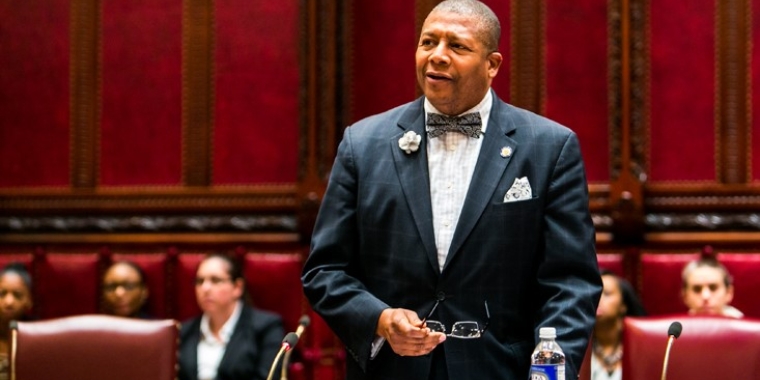
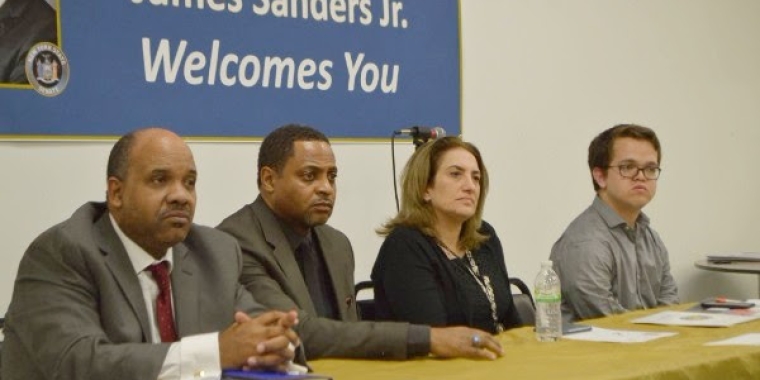
Sanders Slams Racist Sweatshirt from H&M
January 9, 2018

